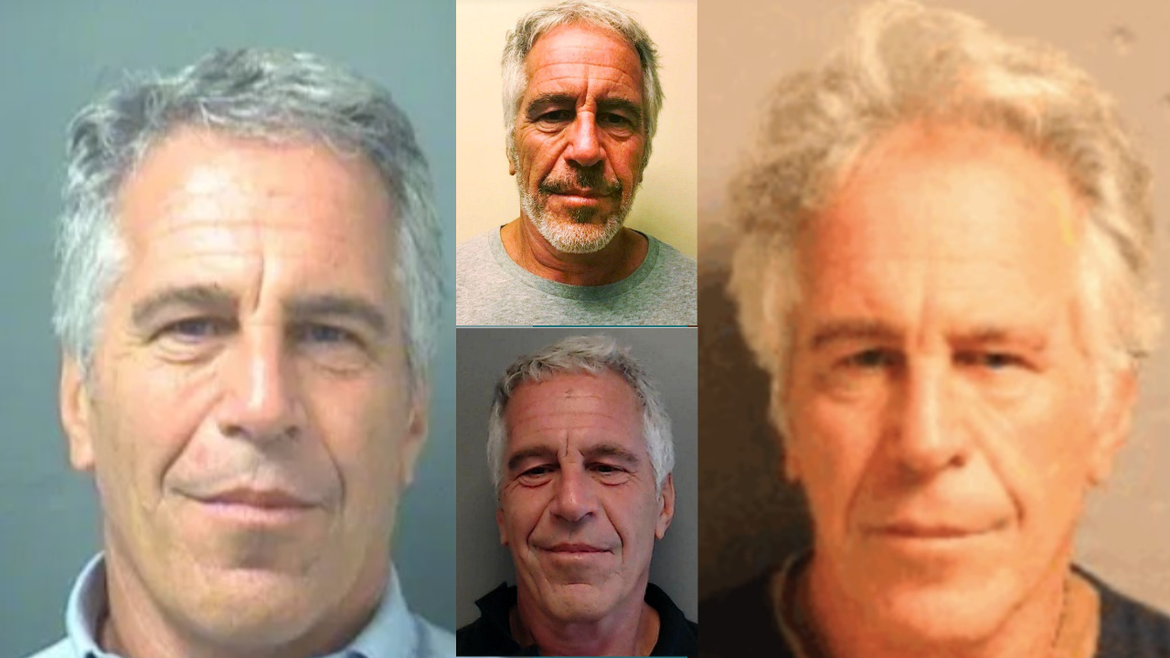The complaint, filed in connection with a lawsuit against JP Morgan by the attorney general of the U.S. Virgin Islands, alleges that "at least 20 individuals paid through JP Morgan accounts were victims of trafficking and sexual assault."
News articles about Jeffrey Epstein purchasing a 14-year-old girl from Europe were allegedly included in J.P. Morgan's due diligence reports about the pedophile, according to an amended complaint filed in connection with a lawsuit against the bank by lawyers for the U.S. Virgin Islands.
The complaint alleges that executives at J.P. Morgan should have known that the girl lived in a property owned by the pedophile.
It then further alleges that the largest bank in the country transferred over $600,000 from accounts controlled by Epstein into the girl's own personal J.P. Morgan account.
"Like other women who received payments from Epstein, Jane Doe 1 listed Epstein’s apartments on 66th Street in New York City as her address, which should have been a red flag to JP Morgan," reads the complaint obtained by Inside Edition Digital.
Lawyers for the U.S. Virgin Islands filed the civil lawsuit against J.P. Morgan last year, writing in their initial complaint that the company "turned a blind eye to evidence of human trafficking over more than a decade because of Epstein’s own financial footprint, and because of the deals and clients that Epstein brought and promised to bring to the bank."
The recently filed amended complaint says that despite news reports identifying this woman as a possible victim of sex trafficking, executives at J.P. Morgan allegedly referred to her in an internal document as Epstein's "assistant or young lady he brought over from Prague (or some place like that)."
That same internal document allegedly "describes charges in New York, Palm Beach, and St. Thomas for lingerie and other sexually explicit material," according to the complaint.
"Elsewhere, J.P. Morgan describes media reports referring to the fact that Epstein purchased her at age 14," says the complaint. "She remained a customer of J.P. Morgan, and Epstein paid her more than $600,000, from his accounts at J.P. Morgan, including more than $165,000 after Epstein’s plea."
In court documents, J.P. Morgan, says that it "lacks knowledge or information sufficient to form a belief as to the truth of the allegations," and therefore denies the allegations, including that any knowledge of the alleged victim residing at an apartment owned by Epstein "should have been a red flag."
In response to the $600,000 payment, a lawyer for J.P. Morgan states that the allegation "characterize[s] the contents of documents" and "respectfully refers the Court to those documents for a complete and accurate recitation of their contents."
The complaint also alleges that top executives at the company were aware that Epstein had been convicted of soliciting an underage girl
"Concerns about the risks that Epstein posed were well known enough that numerous JP Morgan senior executives... met in various groupings in July and October 2008, January 2011, August 2011, and July 2013," the complaint claims.
The complaint identifies several executives by name, but does not elaborate on what each individual allegedly knew or discussed in the meetings mentioned.
GOVERNMENT OF THE U.S. VIRGIN ISLANDS VS J.P. MORGAN: SECOND AMENDED COMPLAINT
The newly amended complaint further alleges that members of the firm “facilitated or participated in, directly or indirectly, the trafficking enterprise Epstein helmed. The investigation revealed that J.P. Morgan knowingly, negligently, and unlawfully provided and pulled the levers through which recruiters and victims were paid and was indispensable to the operation and concealment of the Epstein trafficking enterprise.”
More specifically, the complaint alleges that Epstein paid large sums of money to a number of female victims and enablers through his J.P. Morgan accounts.
The complaint alleges that "at least 20 individuals paid through J.P. Morgan accounts were victims of trafficking and sexual assault in Little St. James, New York, and/or other Epstein properties."
The complaint does not name any of these alleged victims or the alleged enablers who received payments, with the exception of Ghislaine Maxwell, who the complaint claims received $23 million in the span of just four years from1999 and 2002.
Another woman, identified only as a "recruiter given immunity through Epstein’s non-prosecution agreement," received "more than $728,000 from Epstein’s J.P. Morgan accounts," according to the complaint.
J.P. Morgan began doing business with Epstein as early as 1998, according to the complaint, managing approximately 55 accounts for him, which were worth hundreds of millions of dollars. J.P. Morgan parted ways with Epstein in 2013, keeping him on as a client for five years after he pleaded guilty to soliciting a minor in the state of Florida, according to the complaint.
Epstein was arrested in 2019 on federal charges of sex trafficking minors in Florida and New York. He was found dead in a jail cell one month after his arrest. A medical examiner ruled his death a suicide.
J.P. MORGAN ANSWER TO SECOND AMENDED COMPLAINT AND STATEMENT OF AFFIRMATIVE DEFENSES
"J.P. Morgan facilitated and concealed wire and cash transactions that raised suspicion of—and were in fact part of—a criminal enterprise whose currency was the sexual servitude of dozens of women and girls in and beyond the Virgin Islands," the lawsuit filed by the U.S. Virgin Islands alleges. "Human trafficking was the principal business of the accounts Epstein maintained at JP Morgan."
J.P. Morgan did not respond to Inside Edition Digital's requests for comment, but it has denied any wrongdoing and in an answer to the lawsuit the bank says it "did not have knowledge, constructive or otherwise, that a person under the age of 18 would be caused to engage in a commercial sex act."
That filing also states that J.P. Morgan "did not have knowledge, constructive or otherwise, that means of force, threats of force, fraud, coercion, or any combination of such means would be used to cause any person to engage in a commercial sex act."






